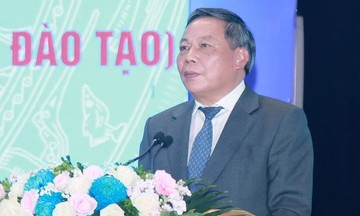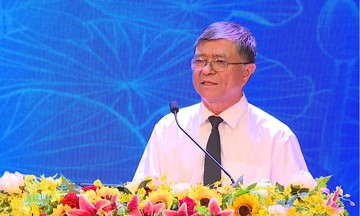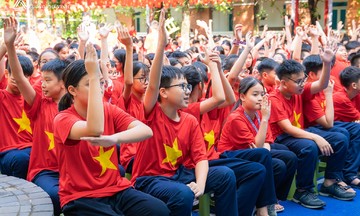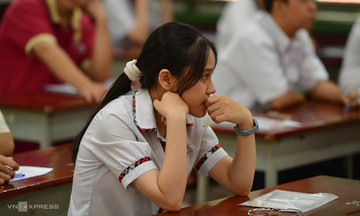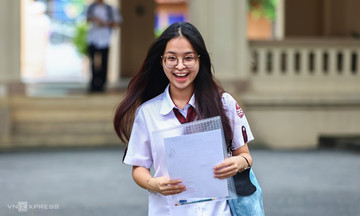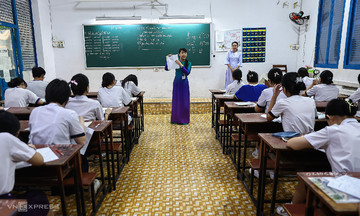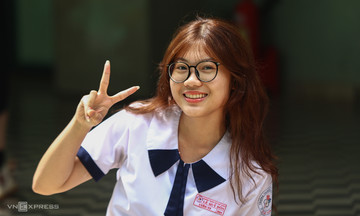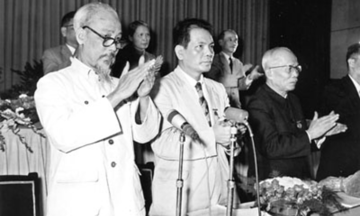Yoon Hye-won also received the Maryam Mirzakhani Award for outstanding female contestant at the 2025 IMO in Australia in mid-July. The award is named after the Iranian mathematician, the only woman to date to win the Fields Medal, considered the Nobel Prize of mathematics.
At 13, Hye-won is the youngest female member of the South Korean IMO team to achieve this feat.
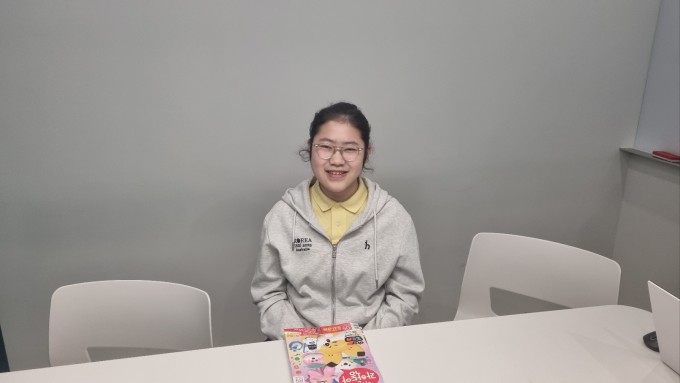 |
Yoon Hye-won in an interview in mid-July. Photo: DongaScience |
Yoon Hye-won in an interview in mid-July. Photo: DongaScience
Yoon Hye-won is currently in 8th grade at Sookmyung Girls' Middle School. She said she started studying advanced mathematics in 5th grade but didn't attend any cram schools. Hye-won often reads science magazines for teenagers and discusses schoolwork with her parents.
"My parents don't teach me, they ask me lots of questions to make me think for myself," she shared.
Hye-won sees studying at home as a "game." Instead of a TV, their living room has two large blackboards where the four siblings and their parents study together every evening. Each person presents their daily lessons, solves difficult math problems, and discusses them like an informal group meeting.
To qualify for the IMO team, contestants must pass the Korean Mathematical Olympiad (KMO), the "Winter School" of the Korean Mathematical Society, and the Asia-Pacific Mathematical Olympiad. Hye-won prepared for three years, through numerous summer camps and mock exams, and won the KMO in 7th grade.
"I thought it would be difficult for a middle school student to be selected for the IMO team, so I didn't expect much. When I was chosen, I felt very grateful and just wanted to give my best for the South Korean team," she said.
Despite her young age, Hye-won didn't feel pressured during the competition. "I'm not easily disturbed by change. I just keep doing what I do every day," she said.
Yoon Hye-won believes that mathematics is the foundation for developing efficient and economical AI, and plans to pursue this field to help disadvantaged communities.
"I want to study mathematics to make AI more efficient so that people in developing countries can access good technology at low cost," Hye-won said.
South Korea has participated in the IMO since 1988, winning 99 gold medals, 85 silver medals, and 28 bronze medals. In this year's competition, the team won four gold medals and two silver medals, ranking third overall.
Before Hye-won, South Korea had a 13-year-old boy, Lee Su-hong, participate in the IMO. However, at that time, Lee had completed middle school and was studying at Jungang High School.
Doan Hung (DongaScience, Nate)



